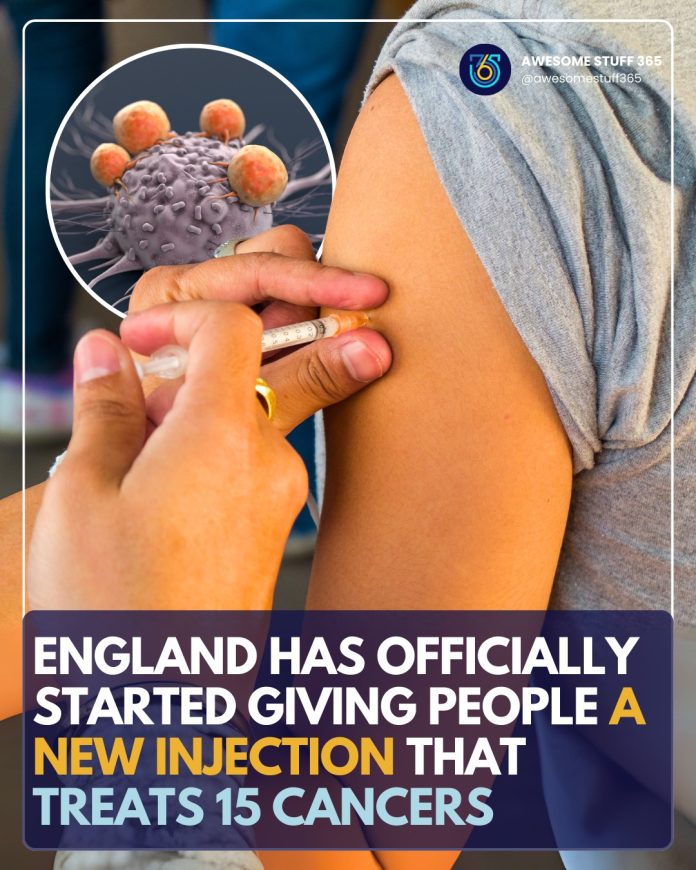In a significant advancement for cancer treatment, NHS England has introduced a new subcutaneous immunotherapy injection that reduces administration time from up to an hour to just five minutes. This development aims to improve patient experience and increase efficiency within the healthcare system.

The injectable form of the immunotherapy drug nivolumab (Opdivo) has been approved by the Medicines and Healthcare products Regulatory Agency (MHRA) and is now being offered to patients with 15 different types of cancer, including lung, kidney, bladder, and skin cancers.
Traditionally, nivolumab is administered intravenously, a process that can take between 30 to 60 minutes per session. The new subcutaneous injection method significantly reduces this time, allowing patients to receive their treatment in as little as five minutes. This change not only enhances patient comfort but also frees up valuable time for healthcare professionals, enabling them to treat more patients.
Professor Peter Johnson, NHS England’s National Clinical Director for Cancer, stated, “Immunotherapy has already been a significant advancement for many NHS cancer patients. Being able to offer it as a quick injection means we can make the process far more convenient.”
The rollout of this new injection method is expected to benefit approximately 1,200 patients per month in England. Most new patients starting treatment with nivolumab are anticipated to receive the injectable form. However, patients who are also undergoing intravenous chemotherapy may continue with the traditional infusion method.
This initiative is part of NHS England’s broader efforts to incorporate innovative treatments that improve patient outcomes and streamline healthcare delivery. By reducing treatment times, the NHS aims to enhance the overall efficiency of cancer services and provide patients with more convenient care options.

The introduction of the subcutaneous nivolumab injection represents a significant step forward in cancer treatment, offering a more patient-friendly approach without compromising the effectiveness of therapy. As the NHS continues to adopt such innovations, patients can expect improved experiences and outcomes in their cancer care journey.

















